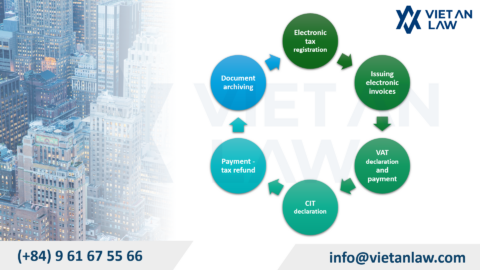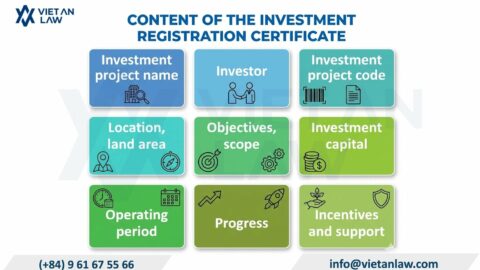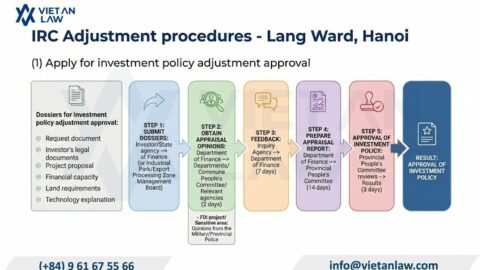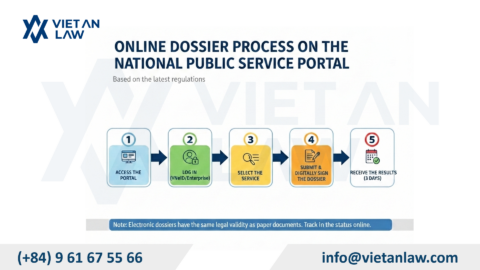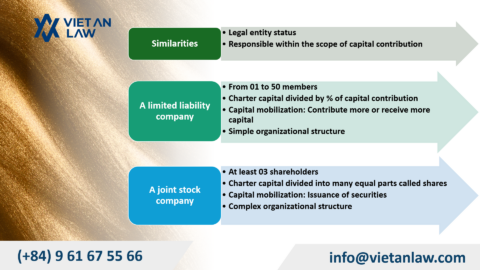The purpose of agreeing on a payment method in foreign currency is to limit fluctuations in the payment currency when compared with the domestic currency. However, payment terms in foreign currency can also have certain disadvantages for the parties when entering into a contract. So what is a contract with a payment term in foreign currency, and what are the shortcomings of this type of contract? In the article below, Viet An Law Firm will present the current regulation related to contractual payment terms in foreign currency in Vietnam.
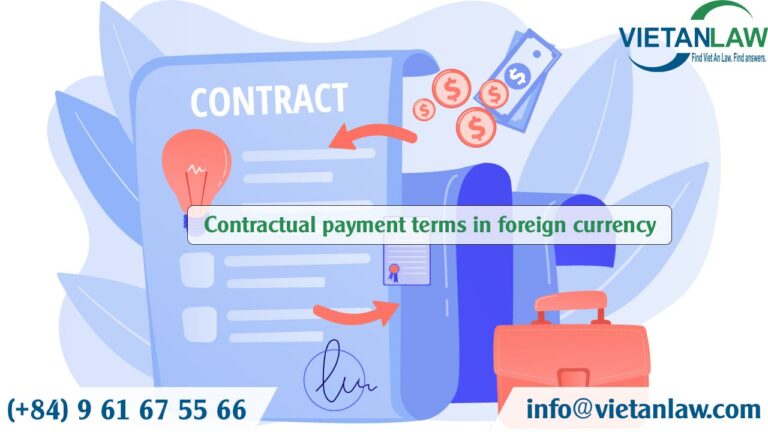
A contract is an agreement between parties that are traders or related persons to serve profit-making business activities.
A contract with an agreement in foreign currency is a type of contract in which an agreement between two (or more) parties is signed, including terms of financial transactions, payments, or transactions of goods and services made in a foreign currency, rather than the currency of the country in which the contract is performed.
In this contract, the parties often agree in advance to use a specific currency to make payments and transactions. This agreement may be due to a free agreement between the parties or based on other relevant legal provisions.
Foreign currency is usually the currency used in international and regional transactions instead of the currency of a specific country or territory. In the field of international business, popular strong foreign currencies include USD (US dollar), EURO (European common currency), GBP (British Pound), CAD (Canadian dollar), CHF (Swiss), and YIP (Japanese Yen). Therefore, payments in commercial contracts can be made using the country’s domestic or foreign currency as appropriate to the transaction.
In addition, payment in foreign currency helps parties prevent exchange rate risks and facilitate international transactions.
One of the most important reasons for using foreign currency in contracts is to deal with exchange rate risk. When the parties participating in a transaction use their country’s currency in an international commercial contract, the parties in the contract may have to face exchange rate fluctuations. Using foreign currency can help protect parties from the negative impact of this volatility.
This is especially important for businesses involved in international trade, where exchange rate risk can affect their own profits and financial stability.
Because foreign currencies are often accepted and widely used globally, contracting parties can easily use foreign currencies to make payments and commercial transactions.
According to Article 22 of the Foreign Exchange Ordinance 2005 (amended and supplemented in 2013), regulations restrict the use of foreign exchange: “On the territory of Vietnam, all transactions, payments, listings, advertisements, quotations, Valuation, price recording in contracts, agreements and other similar forms of residents and non-residents may not be done in foreign exchange, except in cases permitted under the regulations of the State Bank of Vietnam.”
In addition, Article 3 of Circular 32/2013/TT-NHNN stipulates guidelines for restricting the use of foreign exchange in the territory of Vietnam: “On the territory of Vietnam, except for cases where foreign exchange is used stipulated in Article 4 of this Circular, all transactions, payments, listings, advertisements, quotations, valuations, price recording in contracts, agreements and other similar forms (including conversion or Adjustment of prices of goods, services, value of contracts, agreements) of residents and non-residents cannot be made in foreign exchange.”
It can be seen that transactions, payments, listings, advertisements, price recording in contracts, quotations, pricing agreements, or other similar forms are carried out by residents, non-residents are not allowed to make in foreign exchange, unless permitted by the State Bank.
Thus, a contract with an agreement to pay in foreign currency in the cases listed in Article 22 of the Foreign Exchange Ordinance 2005 (amended and supplemented in 2013) or Article 3 of Circular 32/2013/TT-NHNN cannot be implemented currently in foreign currency.
According to Article 4 of Circular 32/2013/TT-NHNN amended by Article 1 of Circular 03/2019/TT-NHNN and Clause 1, Article 1 of Circular 16/2015/TT-NHNN, it stipulates cases of payment in cash. Foreign currency in Vietnam includes some of the following cases:
Thus, only if a contract has an agreement to pay in foreign currency that falls into one of the 17 cases above, it can be paid in foreign currency in Vietnam.
According to Clause 1, Article 117, and Article 123 of the 2015 Civil Code, the conditions for the validity of a transaction or contract are as follows:
“a) The subject has civil legal capacity and civil act capacity appropriate to the established civil transaction;
And that transaction or contract does not fall into the case of “Civil transactions whose purpose and content violate the prohibition of the law are void”.
According to the Civil Code 2005 (effective before January 1, 2017), conditions for contract validity include: “a) Transaction participants have civil act capacity; b) The purpose and content of the transaction does not violate legal prohibitions or is not contrary to social ethics; c) Participants in the transaction are completely voluntary”. Civil transactions whose purpose and content violate legal prohibitions are void.
It can be seen that the phrase “violating the prohibitions of the law” of the Civil Code 2005 has replaced the phrase “violating the prohibitions of Law” of the Civil Code 2015. Accordingly, the term “the prohibitions of the law” is understood as legal regulations that do not allow subjects to perform certain acts. Regulations on these “prohibitions” may exist in laws or sub-law documents such as Decrees, Circulars, and Ordinances. Meanwhile, “prohibitions of Law” are provisions of the law that do not allow subjects to perform certain acts only in legal documents promulgated by the National Assembly.
In addition, according to Article 4 of the Law on Promulgation of Legal Documents 2015, ordinances and circulars are not legal documents. Therefore, transactions/contracts whose object is foreign exchange, specifically negotiating prices and payment methods in foreign currency, are prohibited acts in the Foreign Exchange Ordinance:
If there are disputes related to the validity of the contract, the contracting parties need to pay attention to the time of entering into the contract, as well as the governing law that the parties choose.
If you have any questions about civil, contract, or business law, or need advice on drafting a contract with contractual payment terms in foreign currency in Vietnam complying with the law, please contact Viet An Law Firm for our best support!
